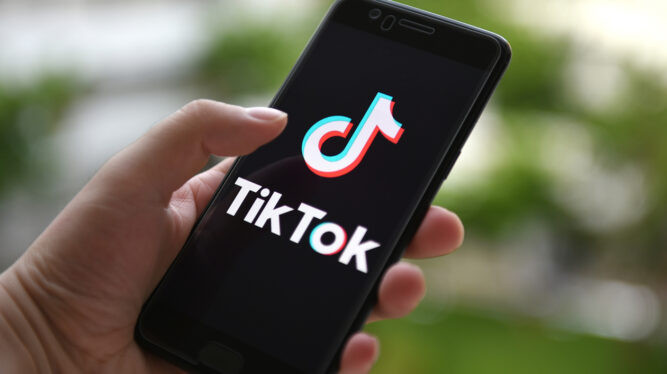The National Music Publishers’ Association’s (NMPA) model TikTok license, which is used by a number of the independent music publishers, will expire at the end of April, and there are no ongoing negotiations between the NMPA and TikTok to renew it.
That means that starting May 1, more songs will be removed from TikTok, joining the millions that have already been removed from the Universal Music Group’s catalog earlier this year. At the end of January, licensing negotiations between UMG and TikTok collapsed, resulting in UMG’s decision to pull its music off the platform. In an open letter sent to artists and songwriters, the company lamented that TikTok failed to pay the “fair value” for music. It also noted other concerns with the platform, including AI concerns and artist safety. TikTok replied within hours, calling UMG’s letter a “false narrative” and that it was “sad and disappointing that [UMG] has put their own greed above the interests of their artists and songwriters.”
It is unclear how widespread the impact of the NMPA’s lapsed license will be. A TikTok spokesperson claims that only a small percentage of its overall music library used the model license and that they are not sure TikTok users will even notice the removals. The spokesperson adds that TikTok is in talks with a number of the publishers who used the NMPA license about getting an individual license, including a few of the larger players that use the NMPA model license. TikTok declined to provide further details.
The NMPA is also tight-lipped about the size of this impact, given the decision of whether or not to individually renew TikTok licenses for May 1 is in the hands of its members, not the NMPA. While the NMPA cannot disclose which independent music publishers use its model license for TikTok, it appears that it is a popular option, used by a large number of firms, ranging from tiny boutiques to sizable independents. The major publishers and some large indies negotiate directly with TikTok already, but the NMPA’s TikTok model license exists as a service largely to help the smaller publishers who would have less negotiating power or resources to get the license on their own.
The NMPA also has model licenses with the other social media networks available to its members, including YouTube, Meta and others, and the organization says it will continue to offer these other model licenses to members. X, notably, is absent from this list because it does not pay for music that appears on its platform. The NMPA has been asking X to license and pay for music for years to no avail, leading the trade organization to launch a $250 million lawsuit against X in June 2023.
The NMPA’s decision to pull out of TikTok should come as little surprise. NMPA president and CEO David Israelite has been supportive of UMG, and its publishing company and NMPA member UMPG, and its choice to leave TikTok since the beginning. Right after UMG announced its exit, Israelite offered a statement, saying “it is extremely unfortunate that TikTok does not seem to value the music creators that fuel its business.”
On Feb. 2, Israelite gave a speech at the Association of Independent Music Publishers Grammy week event, announcing that the NMPA’s license was set to expire at the end of April. “I’m only going to say two things about TikTok: the first is I think music is tremendously important to the business model of TikTok, and, secondly, I am just stating the fact that the NMPA model license, which many of you are using, with TikTok expires in April,” he said at the time.
On March 5, the organization sent a letter to its members, explaining that the NMPA did not foresee renewing its license with TikTok and told members using their model license to negotiate directly with TikTok if they wanted to continue to be on the platform. Since then, the organization has not returned to the negotiating table with TikTok.
In a statement, TikTok said, “We have direct deals in place with thousands of music publishers — including NMPA members — and we will continue to engage with the entire publishing industry to help make their songs available on TikTok.”



